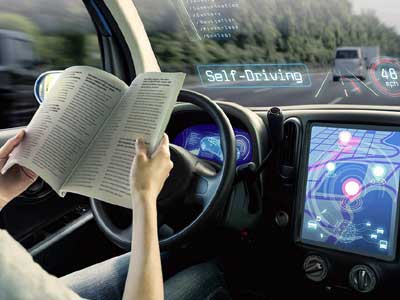At the University of Delaware, Andreas Malikopoulos uses control theory to develop algorithms that will enable this technology of the future.
“We are developing solutions that could enable the future of energy efficient mobility systems,” said Malikopoulos. “We hope that our technologies will help people reach their destinations more quickly and safely while conserving fuel at the same time.”
{youtube}RdO9NAZqUzc{/youtube}
Making traffic lights obsolete
Someday cars might talk to each other to coordinate traffic patterns. Malikopoulos and collaborators from Boston University recently developed a solution to control and minimize energy consumption in connected and automated vehicles crossing an urban intersection that lacked traffic signals. Then they used software to simulate their results and found that their framework allowed connected and automated vehicles to conserve momentum and fuel while also improving travel time.
Saving fuel and avoiding speeding tickets
Imagine that when the speed limit goes from 65 to 45 mph, your car automatically slows down. Malikopoulos and collaborators formulated a solution that yields the optimal acceleration and deceleration in a speed reduction zone, avoiding rear-end crashes. What’s more, simulations suggest that the connected vehicles use 19 to 22 per cent less fuel and get to their destinations 26 to 30 per cent faster than human-driven vehicles.


















Related Items
Extra-marital affairs fuel deadly violence
Uber drivers want to sell their cars sooner, finds research
AI boosts budgeting efficiency, But financial strategy needs humans